Essentials of Oceanography
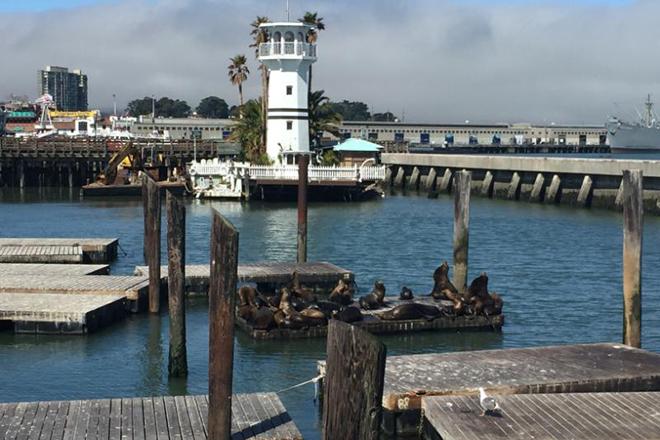
Credit: E. Rubio © Penn State University, is licensed under CC BY-NC-SA 4.0
Resource Description
The year is 2050 and your once-idyllic beachfront vacation home is now flooded up to the second story. The crab your family has enjoyed every Christmas for as long as you can remember has now become an endangered species. The oceans have changed. In EARTH 540, Oceanography for Educators, we explore the mechanisms that lead to sea level rise and ocean acidification. We strive to understand how natural processes such as ocean currents, the gulf-stream, tides, plate tectonics, and the Coriolis Effect, affect our oceans and ocean basins. We then predict how man-made issues such as climate change and overfishing will affect our beloved waters and our livelihoods. This course is no longer being offered for credit and has not been updated since 2019. Learn moreEthical Dimensions of Renewable Energy and Sustainability Systems
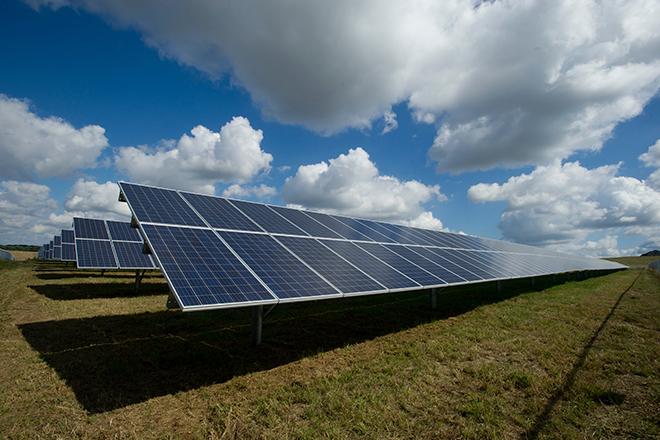
Credit: Solar Panels by American Public Power Association is free to use
Resource Description
This course presents an examination of ethical issues relevant to systems-based research procedures, professional conduct, social and environmental impacts, and embedded ethics in research and professional practice in RESS based jobs. In this course, you will consider case studies of ethical issues that can arise when engaging renewable energy and sustainability systems. You will also develop an ethics case study based on your area of RESS interests. The goals of the course are to provide you with tools for analyzing ethical issues both in the line of professional duties and in consideration of the various ethical issues that face an entire sector of renewable energy and that underpin the very reasons for taking a sustainable and renewable approach. Learn moreGeodesign History, Theory, Principles
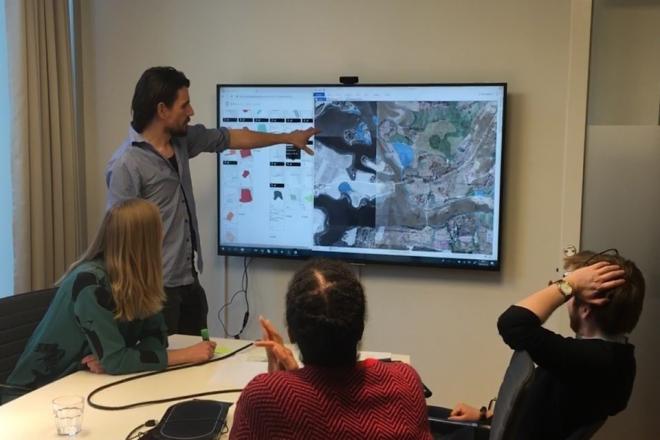
Photo credit: Filip Linders, MSF/Doctors Without Borders/Swedish Innovation Unit (used with permission)
Resource Description
Do you believe that we can be more creative in planning our communities and protecting environments for a sustainable future? Would you like to learn a method to make a difference? One that empowers stakeholders and reduces conflict? Geodesign delivers creative solutions for environmental, economic, and social issues. This method works collaboratively across disciplines, deploying innovative technology to dynamically illustrate the impacts of alternative design scenarios. Geodesign is rooted in the physical design professions coupled with social and geographic sciences and enhanced by the latest technologies. GEODZ 511 introduces students to the multifaceted, well-proven geodesign framework grounded in a series of key decision-making steps. It emphasizes understanding both people and place through a unique collaborative method. Students learn how to work through the steps of the geodesign framework and begin to understand the process needed to make wise choices for today’s urban and rural design and planning challenges.
Learn moreGeology of the National Parks
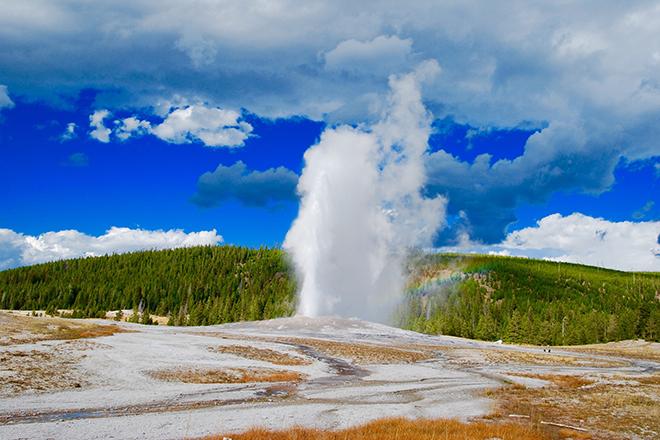
Credit: Geyser With Green Field Background by Damon Holle is licensed under CC0
Resource Description
Geysers and grizzlies and glaciers, oh my. The national parks may be America's best idea, saving the finest parts of the nation for everyone to enjoy forever. What better way to learn about the natural world than to tour the parks with us? We'll explore how the mountains and valleys formed and why they often come with volcanoes and earthquakes. You'll see what really killed the dinosaurs and how we can help save their modern relatives in the parks. With film clips, slide shows, and our geological interpretations of classic rock songs, isn't it time for a road trip? Learn moreGlobal Energy Enterprise

Credit: Lobbying 161689 by OpenClipart-Vectors is licensed under CC0
Resource Description
Have you seen a Clean Coal baseball cap? In the challenge to meet soaring energy demand with limited resources, volatile issues like those related to the environment, national security and public health are often addressed outside of normal market transactions and are called externalities, or nonmarket factors. Stakeholders can act in resourceful ways to create a nonmarket environment that best serves their interest. A firm may challenge a law that makes it expensive or difficult to do business or compete with others, for example. An individual may organize a boycott of products or services that violate the individual's interests or principles--hey, don't buy from them! Nonmarket strategy in the energy sector is the subject of this engaging course. Learn moreHuman Use of the Environment
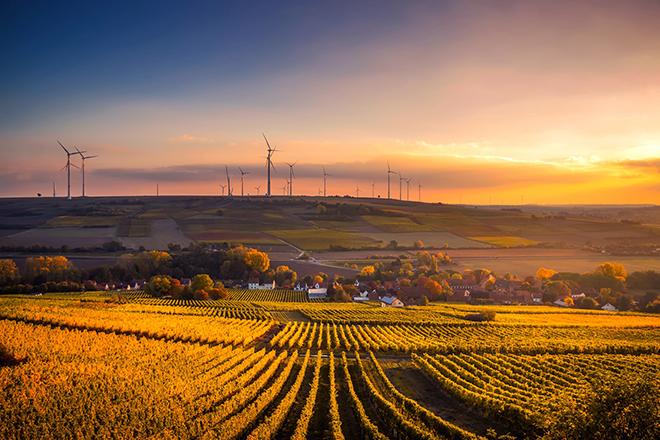
Credit: Green 2558976 by StockSnap is licensed under CC0
Resource Description
Geography 430 is an active, creative learning community focused around understanding the changing relationships between people and their environments, the causes and consequences of environmental degradation, strategies for building a more sustainable world, and the methods and approaches that scholars have used to understand human-environment interactions. The primary course objectives are to help geographers, earth scientists, and other professionals to deepen their appreciation for the complexity of human-environment systems and to develop skills that allow them to interpret, analyze, and communicate effectively regarding human-environment interactions in their lives as students, professionals, and citizens. Learn moreIntroductory Meteorology
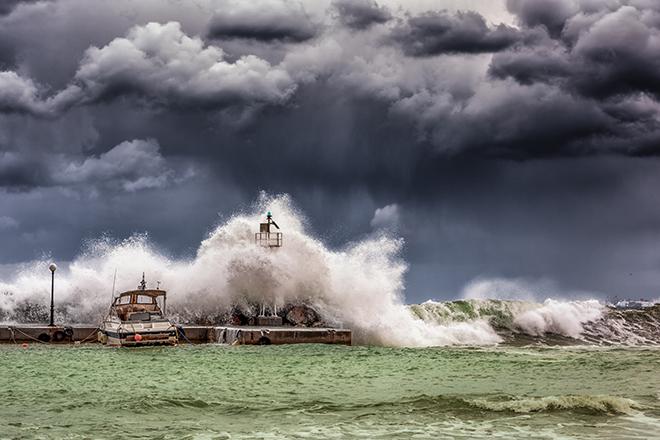
Credit: Big Waves Under Cloudy Sky by GEORGE DESIPRIS is free to use
Resource Description
Benjamin Franklin is credited with saying, “Some people are weatherwise, but most are otherwise.” Ol’ Ben understood that weather can have a great effect on our everyday lives, and he knew the importance of having an understanding of what makes the atmosphere work (and not just knowing when it’s safe to fly a kite). In METEO 3, we will examine all aspects of the weather. You’ll learn the fundamental processes that drive the atmosphere, along with some of the tools we use to measure those processes. You’ll also learn about large-scale weather systems, severe convection, tropical weather, and climate change. As a result, you’ll be a better consumer of weather information and forecasts. So… do you want to be weatherwise? Learn moreOrientation to Energy and Sustainability Policy
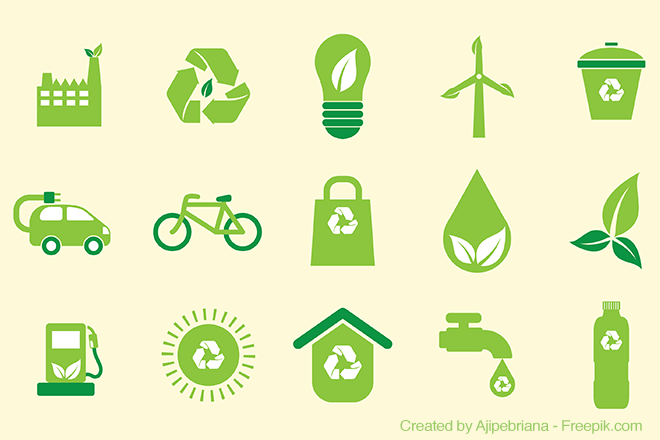
Credit: Green Environmental Icons Collection from ajipebriana is free for use (modified)
